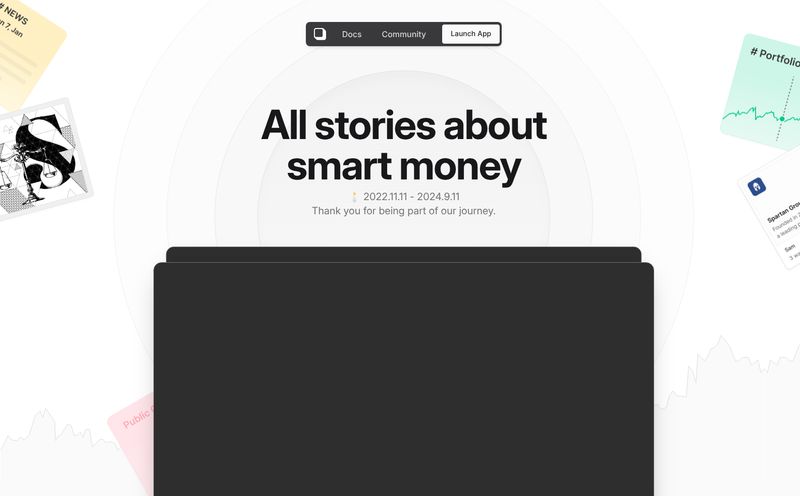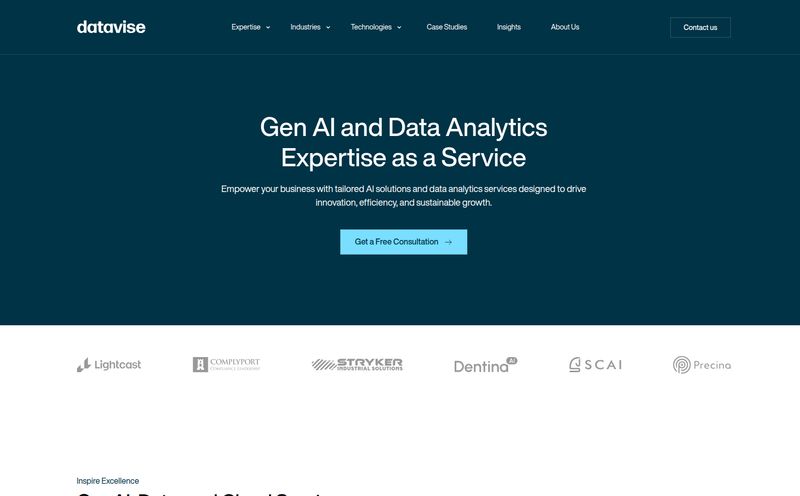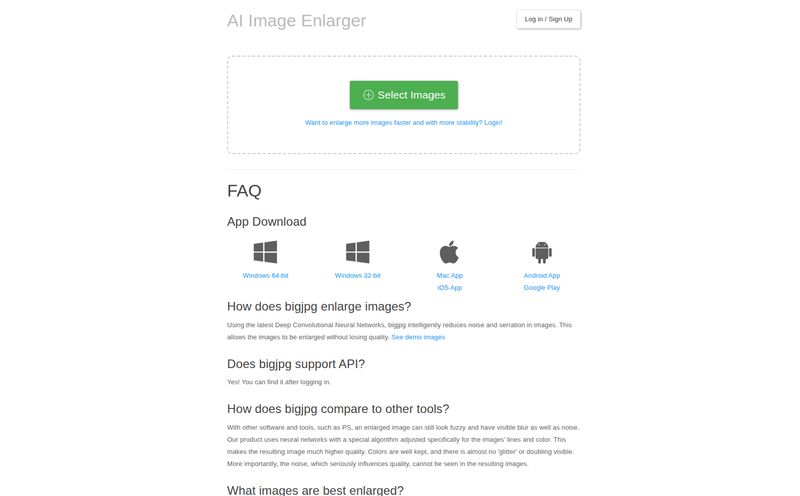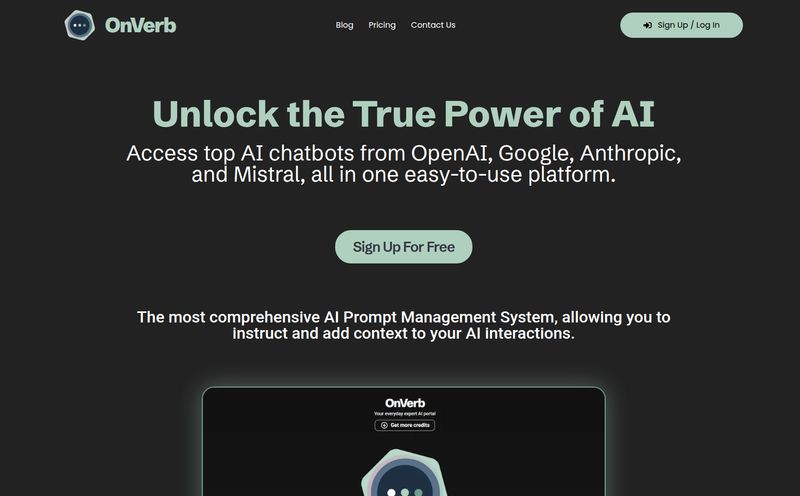I've been in the SEO and digital marketing world for what feels like a lifetime. I’ve seen trends explode and then fizzle out. But let's be honest, the Generative AI wave is different. It’s not just a trend; it's a full-blown tsunami changing how we create content, write code, and do business. And like many of you, I've been riding that wave, using AI tools for everything from keyword research to drafting ad copy.
But there's this little voice in the back of my head—and in the heads of every CTO and compliance officer I talk to. What happens when we accidentally paste sensitive client data into a prompt? Or when the AI generates content that’s a little too similar to something already copyrighted? The “move fast and break things” mantra feels a lot riskier when you could be breaking data privacy laws like GDPR or HIPAA.
So, I’ve been on the hunt for a solution. Not just a flimsy promise, but something concrete. That’s when I stumbled across ZeroTrusted.ai. The name itself is intriguing, borrowing from a pretty serious cybersecurity concept. But is it the real deal? Or just another startup with a fancy landing page? Let's take a look.
So, What Exactly is ZeroTrusted.ai?
In the simplest terms, think of ZeroTrusted.ai as a high-tech security guard and a meticulous legal advisor for all your AI activities. It's built on a principle called “Zero Trust Architecture,” which, if you’re not a total security nerd, basically means “never trust, always verify.” It doesn't assume any user or prompt is safe by default. Instead, it inspects and secures everything happening between you and the Large Language Models (LLMs) like GPT-4, Llama, and others.
Its main gig is to be an LLM Firewall. Just like a network firewall protects your computer from shady internet traffic, an LLM Firewall protects your company from the risks of using generative AI. It’s designed to stop data leaks, prevent compliance breaches, and keep your interactions with AI private and secure. A pretty tall order, right?
The Core Features That Actually Matter
A features list is just a list until you understand what it actually does for you. I dug through their documentation and comparison tables, and here are the bits that really stood out to me.
The LLM Firewall: Your AI's First Line of Defense
This is the heart of the platform. Before your prompt even reaches a model like ChatGPT, the firewall jumps in. It automatically scans for and redacts sensitive information—think Personally Identifiable Information (PII), Protected Health Information (PHI), and even credit card numbers (PCI-DSS). It’s like having a bouncer who checks every bit of data leaving your company, ensuring it’s not carrying anything it shouldn’t. It also anonymizes your prompts, so the AI model on the other end has no idea who is asking the question, adding another layer of privacy.
Dodging Copyright Bullets and Plagiarism Panic
For anyone in the content game, this is huge. We all love how fast AI can generate articles, scripts, and posts. But the fear of accidental plagiarism is real. ZeroTrusted.ai includes a Copyright Risk Verification and Plagiarism Detection feature that proactively checks the AI's output. It's a safety net that helps ensure the content you're creating is original and doesn’t step on any intellectual property landmines. This could literally save a business from a nasty lawsuit down the road.
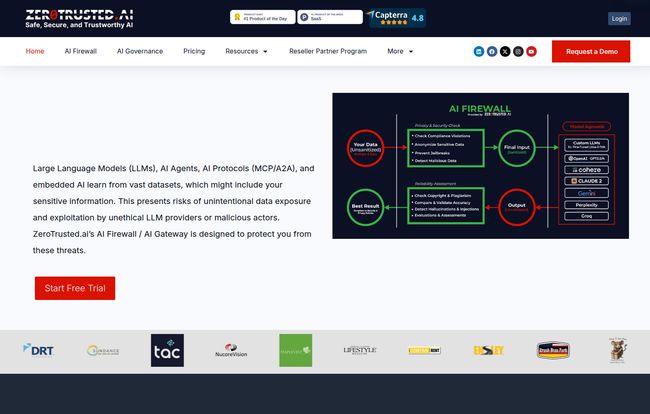
Visit ZeroTrusted.ai
Making Compliance Less of a Nightmare
If you're in an industry like healthcare or finance, the words GDPR, HIPAA, or NIST probably give you a slight headache. AI adds a whole new level of complexity to staying compliant. This platform is designed to simplify that. By automatically filtering sensitive data and providing audit logs, it helps businesses meet these stringent requirements without needing a dedicated team of lawyers watching every prompt. It even provides Certificates of Compliance, which is a fantastic way to demonstrate due diligence.
Integration and Deployment - Will It Break My Stuff?
My first question with any new tool is always, “Is this going to be a pain to set up?” The company claims it offers “seamless integration” and is “cloud agnostic,” which is tech-speak for “it plays nice with others.” It's designed to sit between you and the AI models you already use, not replace them. So whether you’re using OpenAI’s API, an open-source model like Llama, or something else, it should slot right in. They offer both a cloud-based (SaaS) solution and an on-premise version for organizations that need to keep all their data completely in-house.
Let's Talk Money: The ZeroTrusted.ai Pricing Breakdown
Alright, let’s get to the question on everyone’s mind: what’s this going to cost? Their pricing seems pretty straightforward and is broken down into a few tiers, which I appreciate. No one likes having to book a demo just to see a price tag.
For their Cloud (SaaS) Plans, where you bring your own API key (BYOK) from a provider like OpenAI, you've got a couple of options:
- Standard Plan: This runs $9.99 per month per user (or $99.99/year). It’s geared towards startups and small teams of 1-10 people. It includes the core features like PII redaction and DLP, but the plagiarism check is limited.
- Team Plan: At $14.99 per month per user (or $149.99/year), this is for teams of 11-50. You get more generous limits on things like the copyright checks and API calls.
- Enterprise Plan: This is the classic “Contact Us for Pricing” model. It’s for large teams with unlimited users and comes with dedicated support.
They also offer On-Premise Plans for companies that want total control:
- On-Premise: Starts at $2,400 per year for up to 100 users. This is a solid option for mid-sized businesses in regulated fields.
- On-Premise Enterprise: Again, you'll need to contact them for pricing, but this is for large-scale deployments with over 101 users.
I think it’s pretty cool they offer a 15-day free trial without requiring a credit card. It shows confidence in their product. Overall, the per-user pricing for the SaaS plans feels very reasonable, especially when you weigh it against the cost of a single data breach or compliance fine.
My Honest Take: The Good, The Bad, and The Realistic
So, after digging in, what’s my verdict? I’m cautiously optimistic. The approach they're taking with the Zero Trust model just makes sense for AI. It’s proactive, not reactive. The focus on practical problems like data leakage and copyright infringement shows they understand the real-world anxieties of businesses today.
The good is obvious: robust data protection, simplified compliance, and that sweet, sweet plagiarism checker. It feels like a mature solution for a very new problem. For any business that handles customer data or produces a high volume of content, the value proposition is crystal clear.
Now, for the other side of the coin. This isn't a magic wand. Security is a process, not just a product. The pricing, while reasonable, is a recurring cost that scales with your team size, so you have to budget for it. And for the really powerful, unlimited features, you're pushed into the enterprise tier, which can be an intimidating step for some smaller companies. It's a specialised tool, and that comes with a specialised price tag as you grow.
Who Is This Really For?
I see a few key groups getting a ton of value from ZeroTrusted.ai:
- Marketing and Content Agencies: The plagiarism and copyright features alone could make this a must-have.
- Healthcare and Finance Companies: Any organization bound by HIPAA, GDPR, or other data privacy regulations. This tool is practically built for them.
- Tech Startups: Especially those building AI features into their own products and need to ensure their users' data is safe.
- Large Enterprises: Companies with dedicated security and compliance teams who need an auditable, enterprise-grade solution to manage AI usage across hundreds or thousands of employees.
In the end, we're all scrambling to adapt to this new AI-powered world. And while the possibilities are exciting, the risks are just as real. A tool like ZeroTrusted.ai feels less like an optional extra and more like a necessary piece of a modern tech stack. It’s the digital equivalent of wearing a seatbelt. You might not need it every day, but when you do, you’ll be incredibly glad you have it.
Frequently Asked Questions about ZeroTrusted.ai
What is an LLM Firewall?
An LLM Firewall is a security service that sits between a user and a Large Language Model (like GPT-4). It inspects prompts and responses to block sensitive data from being leaked, prevent malicious attacks, and ensure the AI's usage complies with company policies and regulations.
Does ZeroTrusted.ai work with ChatGPT?
Yes, indirectly. It's designed to secure interactions with the underlying models that power tools like ChatGPT, specifically through API access to models like GPT-3.5 and GPT-4. It integrates with your workflow to protect the data you send to and receive from these powerful AI systems.
Is ZeroTrusted.ai difficult to set up?
Based on their claims of “seamless integration,” it's designed to be straightforward. The SaaS version should be relatively easy to configure, as it's meant to work with your existing AI tools and cloud infrastructure without major overhauls.
Is there a free trial?
Yes, ZeroTrusted.ai offers a 15-day free trial for its Standard and Team plans, and they don't require a credit card to sign up. This lets you test out the features and see if it's a good fit for your team before commiting.
Can it really prevent all data leaks?
While no security tool can promise 100% prevention, ZeroTrusted.ai significantly reduces the risk. Its Data Loss Prevention (DLP) and automatic redaction of sensitive information (PII, PHI) act as a powerful filter to stop the most common and dangerous types of accidental data leaks through AI prompts.
What's the main difference between the SaaS and On-Premise versions?
The SaaS (Software-as-a-Service) version is hosted by ZeroTrusted.ai in the cloud, offering easy setup and maintenance. The On-Premise version is installed on your own company's servers, giving you complete control over your data and the security environment, which is often a requirement for organizations with very strict data residency or security policies.
Conclusion
Navigating the AI revolution feels a bit like the wild west right now. There’s immense opportunity, but also a lot of risk. For a while, we’ve been using these incredible tools with our fingers crossed, hoping for the best. ZeroTrusted.ai represents a move towards a more mature, responsible approach. It's not just a product; it’s a strategy for using AI's power without exposing your business to its potential dangers. It might not be a magic wand, but it’s a seriously solid shield in an increasingly complex digital arena.
